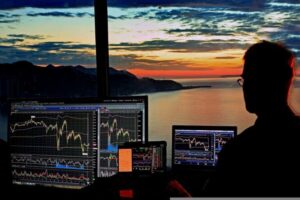World Markets Unprepared for 7% US Interest Rates, Warns JPMorgan's Dimon

Global financial markets could face unprecedented turbulence if the Federal Reserve pushes its benchmark interest rate to 7% in the face of stagflation, cautioned Jamie Dimon, the CEO of JPMorgan Chase & Co.
During a recent conversation while in Mumbai for a JPMorgan investor summit, Dimon referred famous investor Warren Buffet, often referred to as the Oracle of Omaha, said that when the tide goes out “you find out who is swimming naked.” Per Dimon, the Fed raising rates to 7% would be the tide going out.
Despite previously advocating for a rate hike to counter soaring inflation, Dimon underscored that the transition from 5% to 7% would exact a more pronounced toll on the economy compared to the shift from 3% to 5%.
Analysts currently believe that the Federal Reserve is approaching the end of its tightening cycle, after raising the benchmark rate to 5.5%, the highest level in 22 years. While officials have suggested interest rates will need to stay higher for longer to curb inflation, futures markets indicate an expectation of rate reductions as we move into the next year.
The Fed’s benchmark rate rising to 7% would significantly impact both business and consumers, and would raise the chances the US economy enters a recession, which economists are already putting at 60% over the next 12 months.
Dimon, commenting on the potential hike, said:
Going from zero to 2% was almost no increase. Going from zero to 5% caught some people off guard, but no one would have taken 5% out of the realm of possibility. I am not sure if the world is prepared for 7%.
Earlier this month, the Federal Reserve maintained its benchmark rate, in line with broad expectations. Yet, projections suggest a split in the board, with 12 out of 19 officials in favor of another increase this year, and one foreseeing rates cresting 6%.
Federal Reserve Chair, Jerome Powell, has committed to data-driven rate decision in the future. Notably, economist and gold bug Peter Schiff has, as CryptoGlobe reported, painted a bleak picture for the U.S. dollar and the broader economy, tracing current inflationary pressures back to the 2008 financial meltdown.
Schiff argued that policies adopted post the crisis, specifically the quantitative easing measures dubbed QE1, QE2, and QE3, coupled with the fiscal response to the Covid pandemic, are the primary drivers of the escalating inflation rates.
He also pointed to the US’s growing fiscal imbalances, drawing attention to an annual budget deficit nearing $2 trillion and a steadily mounting national debt. Per his words this is going to “lead to much higher inflation in the future than what we’ve experienced in the past.”
As CryptoGlobe reported, in a recent interview the well-known economist revealed mounting concerns regarding the stability of the U.S. dollar, saying there’s “going to be a massive crisis,” that will send “the economy into a tailspin.”
Featured image via Pixabay.
Source: Read Full Article
